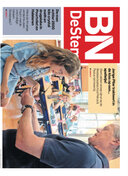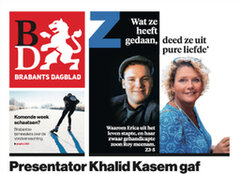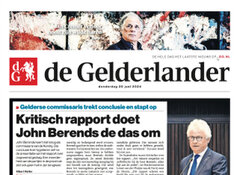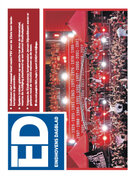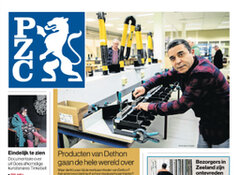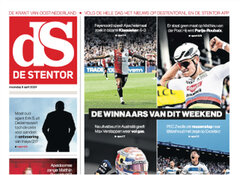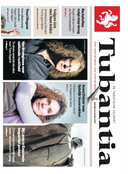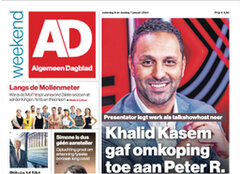‘Independent journalist’ employed by the local authority
Are we still close enough?
It had been discussed for more than a year, but he finally started this autumn: the independent council journalist of the Municipality of Hof van Twente. Why is this so unusual? Because this journalist will be paid by the local council. Yet it has also got us thinking: are we, as a regional brand, still living up to our promise to readers of always being by your side?
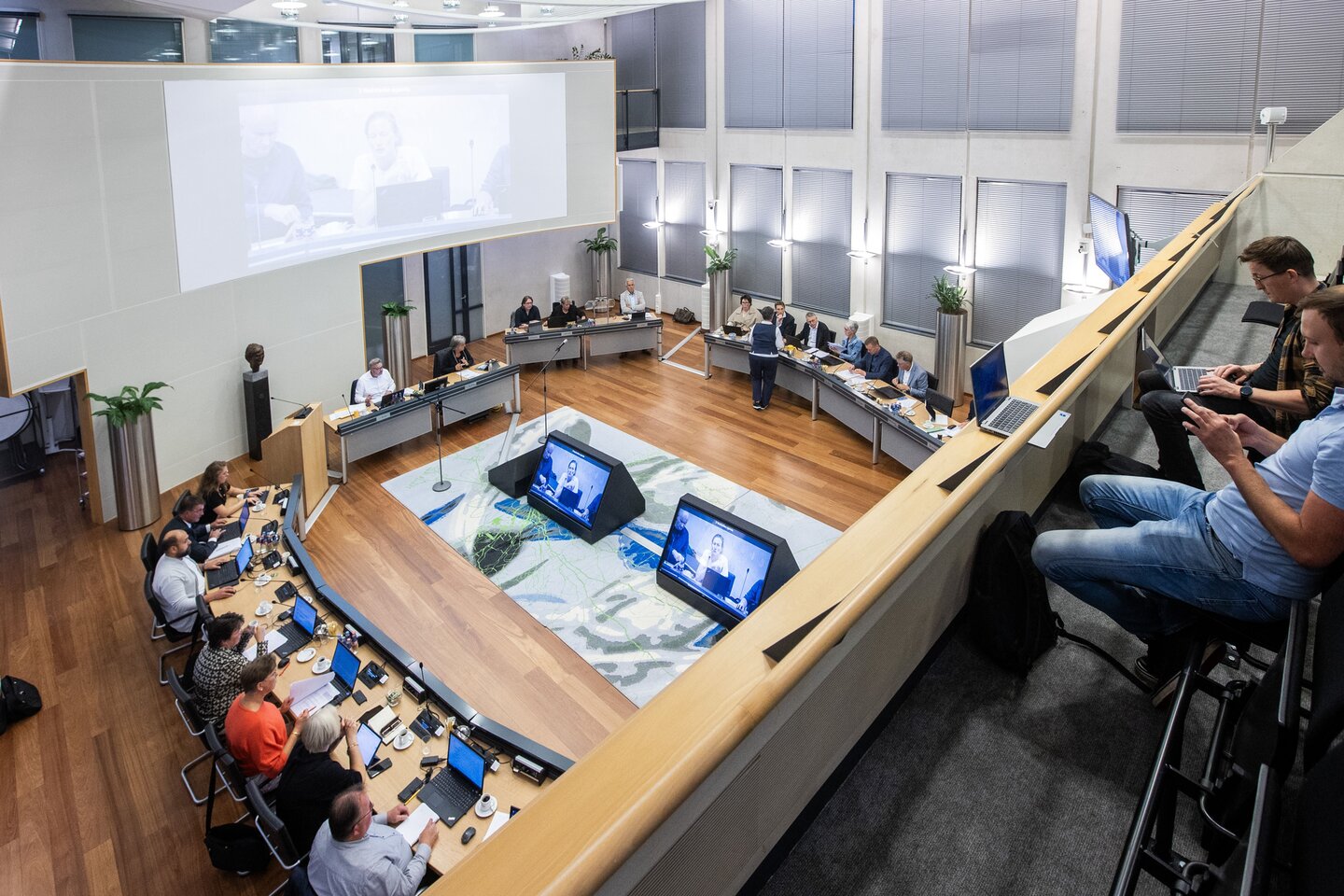
A
brief history. In July 2023, the Hof van Twente Municipal Council asked for its own “independent political journalist”, partly because “regional newspapers hardly ever report on council meetings”. It caused a commotion, also within our editorial team. How independent is a reporter who is paid by the local council?
After much deliberation by the Municipal Executive, they decided on a contrived construction to meet the wishes of the Municipal Council. The council journalist will not be on the payroll of the local council, but on that of the local newspaper Hofweekblad. And that paper will in turn receive an additional amount from the local council. Objectivity, neutrality and independence guaranteed, right?
Yet not only do we have justified doubts about this form of ‘journalism’, we should also look in the mirror. Because they are right at Hof van Twente. Although we follow committee and council meetings, we no longer always report on these. This sometimes raises questions from readers. Why weren’t you there? Often followed by the accusation that we are neglecting our role as watchdog of local democracy.
This is often a topic of discussion in the editorial team. When should we write about local politics? And how should we do that? Our point of departure: we stay as close as possible to our readers and the local population. We focus on them, not on the politicians. We do this because we are convinced that people are not interested in yet another report about political bickering between councillor X and Y.
Independent
We are not primarily concerned about what the politician thinks, but about what the politicians decide. How will these decisions help or affect the people in Twente and the Achterhoek? What other solutions could possibly help? And what problems do people themselves experience that local politics could help with? To answer these questions, we will of course continue to turn to the municipal executives and councillors.
We are not primarily concerned about what the politician thinks, but about what the politicians decide
The council journalist of Hof van Twente has already published his first reports. If these reports help the local population become better informed about what is happening locally, then that is to be applauded. All initiatives to help inform people as much as possible about their own town, village or neighbourhood, and thus keeping them involved in society, deserve appreciation. We do not get in each other’s way in that regard – quite the contrary, in fact. But our reporters in Hof van Twente make their own choices and their own stories. Independent. Critical. But always by your side.
Daan Bonenkamp
Editor-in-chief of Tubantia
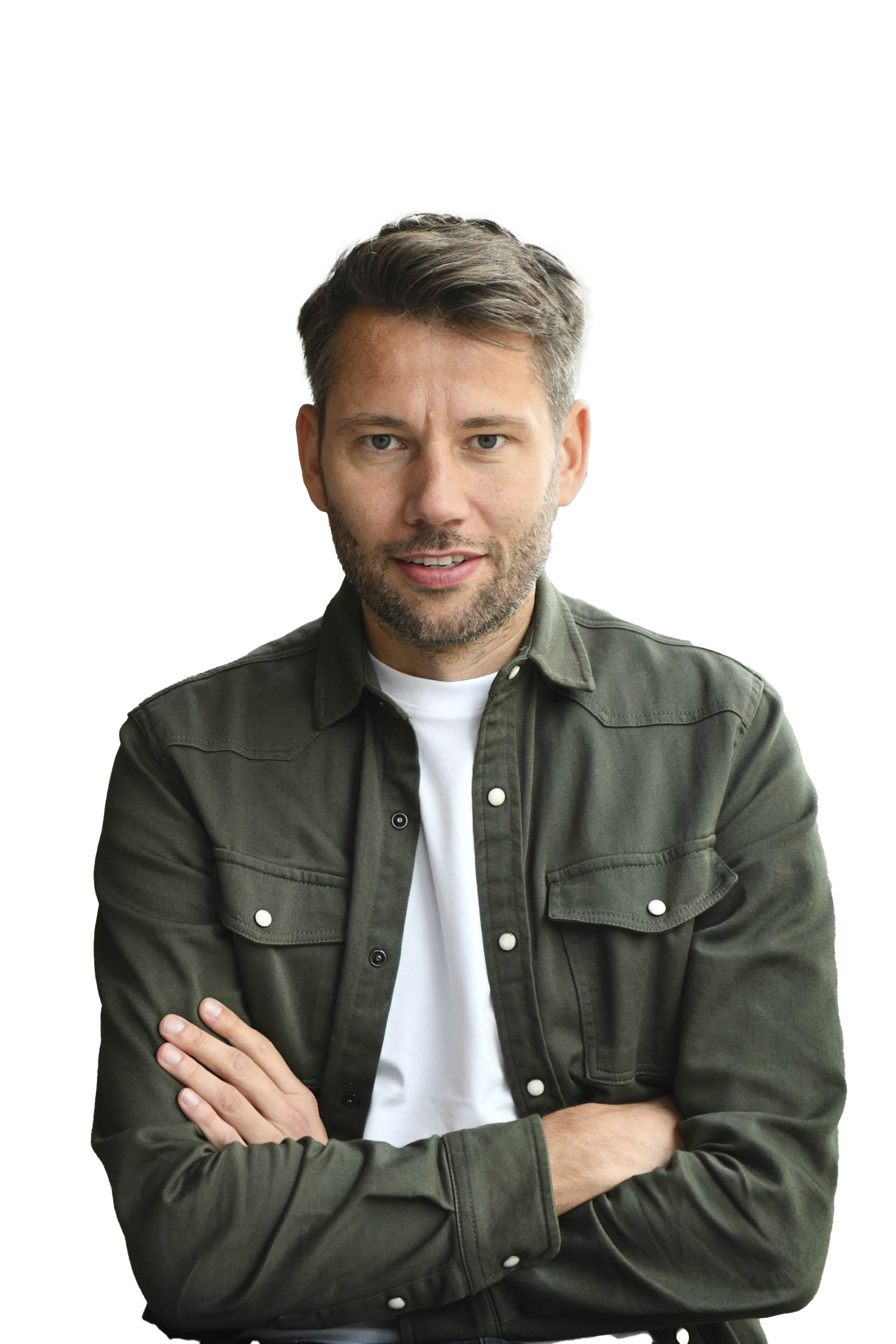
Exhibition of paintings made by Tubantia readers
Readers take up painting
Tubantia Museum. That is what it felt like when we opened the ‘New Masters of the Twente Landscape’ exhibition on a normal Tuesday evening. There were 300 people present. And 40 paintings on the walls, made by our own readers.
When Rijksmuseum Twenthe announced an exhibition of old masters such as Meindert Hobbema and Jacob van Ruisdael, who once painted Twente, we wondered how people see Twente in the year 2024. This is culturally and journalistically interesting. We asked our readers what they thought.
And a great number of them took up their brushes to answer this question. 269 (!) works of art were submitted. Of course, there were many paintings of Twente’s beautiful nature, the country estates and farms, but there were also socially critical artworks: a Twente full of airplanes or a canal in Twente flowing through a landscape of grey factories.
The exhibition was extremely well attended. Thousands of people came to have a look. All this was proof of how great the bond is between the people of Twente and their region. And with our newspaper. We see it as one of our tasks to keep this involvement alive and to strengthen it. With readers as painters, for example. Call it higher-level reader interaction.
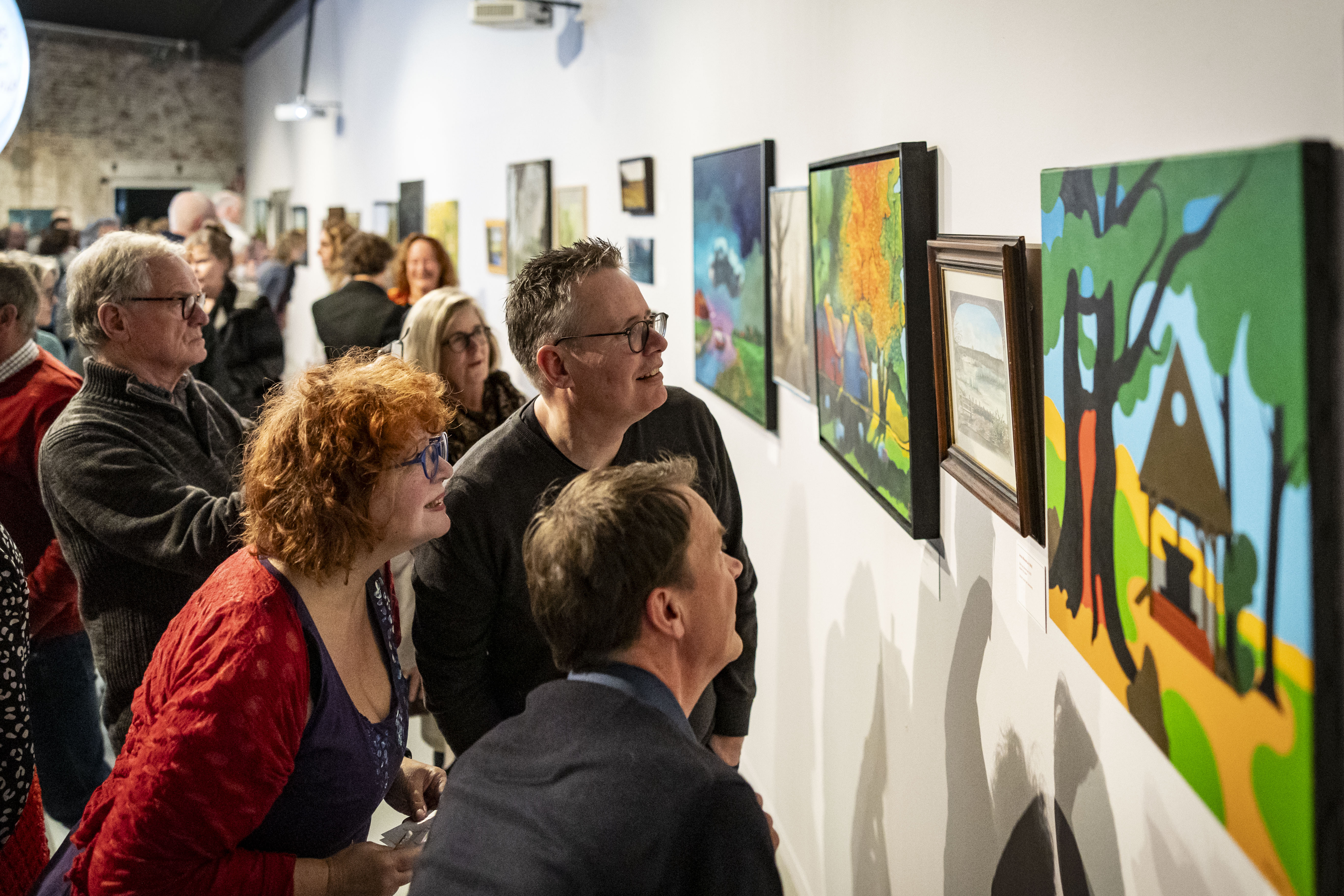
Reaching more people through more simple articles
AI as a bridge to the semi-literate
How can AI help us give people with poor reading skills access to our stories? That was a question posed by the editorial team in Enschede this year. A healthy journalistic attitude: exploring opportunities with an open mind, but at the same time being critically inquisitive.
They had a series of stories in the pipeline about low literacy. This is a major problem in Enschede; it is in the Top 3 of cities with low literacy rates in the Netherlands. The editorial team asked ChatGPT to make a simple version of each article so that the people we are writing about could also understand the articles. Constructive journalism, but with a twist.
We then checked these simple versions ourselves (at language level B1). Subsequently, we placed them online for free with a clear ‘easy read’ caption. This of course included an explanation that AI had been used. Did we reach our target group? We’re not sure. But two figures from the data are hopeful. The reading time was long for the relatively short articles. And the read-to-end rate for the simple versions was higher than for the ‘standard’ premium version. The latter is certainly food for thought: could we reach even more people if we also wrote more simply ourselves?

ADR Nieuwsmedia zit in de haarvaten van Nederland
Algemeen Dagblad en de zeven regionale titels van DPG Media vormen één groep: ADR Nieuwsmedia. Binnen deze grootste nieuwsorganisatie van Nederland wordt nauw samengewerkt. Hoe gebeurt dat?
We vragen het onze abonnees in Gelderland, Brabant, Twente of Zeeland elk jaar opnieuw, maar we kennen het antwoord: zij lezen onze sites, apps en kranten vooral vanwege het regionale nieuws. Dat geldt trouwens niet alleen voor lezers uit die genoemde streken. Ook de AD-lezers in en rond Den Haag, Utrecht of Rotterdam zetten ‘lokaal nieuws’ bovenaan hun lijstje van favoriete artikelen. Meteen daaronder staat vaak hun favoriete voetbalclub.
Het enorme belang dat abonnees stellen in nieuws uit hun eigen buurt deed kranten decennia geleden besluiten zich te concentreren op de beste regionale verslaggeving. Voor zaken als binnenlandse politiek, buitenland, economie, cultuur of topsport bundelden ze de krachten in gemeenschappelijke persdiensten. Zo ontstonden de Zuid-Oost Pers, de GPD en de Wegener Persdienst. Die laatste persdienst verdween toen DPG Media tien jaar geleden de regionale kranten van Wegener kocht. AD en de zeven regionale kranten werken sindsdien samen in ADR Nieuwsmedia.
Samenwerken
Een centrale redactie met 200 journalisten van het AD en de samenwerkende titels in de regio, verzorgt vanuit Rotterdam het (inter)nationale nieuws. Zodat De Gelderlander zich kan richten op de eigen provincie en de PZC zich alleen bezig hoeft te houden met Zeeland.
De stroom nieuws gaat niet alleen van Rotterdam naar de regio, maar ook omgekeerd. Als er in Eindhoven of Enschede iets groots gebeurt, delen het ED en Tubantia dit nieuws onmiddellijk met het AD en de andere regionale titels. Het maakt ADR, zeker buiten de Randstad, tot een van de snelste nieuwsorganisaties en zeker de meest wijdvertakte. Want ADR beschikt over ruim 800 journalisten en een netwerk van lokale correspondenten. ADR zit in de haarvaten van Nederland.
Leidt dit tot eenheidsworst? Allerminst. Het nieuws uit Oost-Nederland beheerst de homepage van de Stentor, dat uit de regio Breda de voorpagina van BN DeStem – en zo verder. De lay-out van ADR-kranten en -online-platforms komen overeen, de inhoud verschilt sterk, want elke titel maakt eigen, onafhankelijke keuzes. De eigenheid en uniciteit van de unieke regionale verslaggeving bepaalt immers het succes van een titel. Ruim 900.000 abonnees en bijna vijf miljoen online bezoekers zijn er dagelijks blij mee.
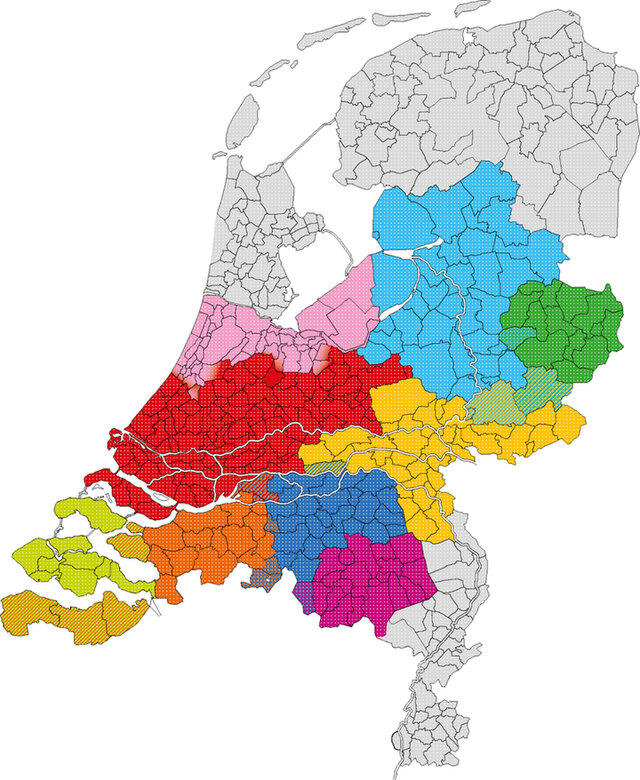
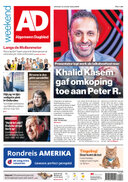
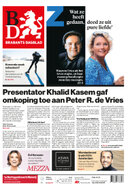
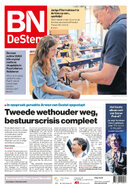
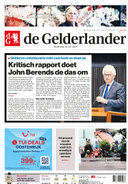
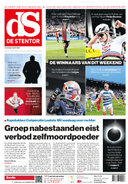
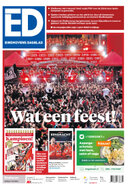
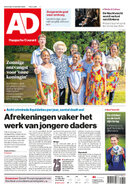
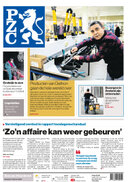
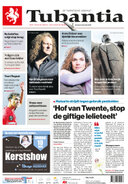
De regionale titels in Nederland
Ad Regio
de Stentor
Tubantia
De Gelderlander
Brabants Dagblad
Eindhovens Dagblad
BN DeStem
PZC
AD Landelijk
Kies jouw locatie
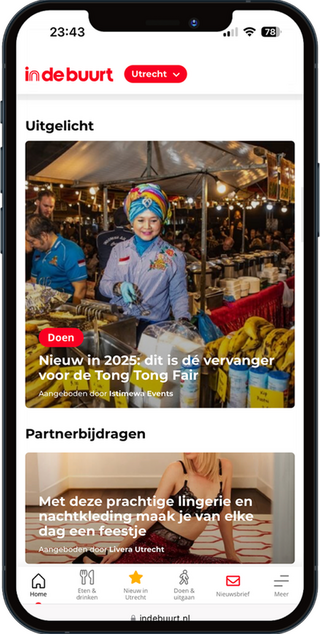
indebuurt.nl
Sinds een aantal jaren maakt ook indebuurt.nl onderdeel uit van ADR. Het gratis platform richt op alles wat een stad leuk maakt voor haar inwoners en is sterk gericht op het bieden van service. Zo geeft indebuurt.nl bezoekers informatie over nieuwe winkels, over uitgaan, activiteiten in de stad en bijzondere plekken. Inwoners worden uitgenodigd de redactie van tips te voorzien, of vrijblijvend teksten, foto’s of video’s aan te leveren. De makers van ‘indebuurt’ hebben de ambitie om gebruikers nauwer bij het stadsleven te betrekken.
indebuurt.nl is actief in 34 steden, vooral in plaatsen waar ook ADR-titels actief zijn. Artikelen van indebuurt.nl staan daarom ook op de sites en apps van de regionale titels van ADR en enkele malen per week in de gedrukte kranten. Per maand bezoeken ruim 2,5 miljoen mensen een van de secties. Daarmee staat ‘indebuurt’ in de top 10 van nieuwssites in Nederland.
Journalistiek & techniek
ADR-redacties maken gebruik van technische innovaties op het gebied van automatisering en kunstmatige intelligentie (AI). Het gebruik van spellingscorrectie is bijvoorbeeld al sinds jaar en dag ingeburgerd. Het is per definitie een journalist die bepaalt welk onderwerp wordt opgepakt en of wat er wordt gepubliceerd. AI wordt – nu nog experimenteel – gebruikt om teksten van bijvoorbeeld persberichten snel samen te vatten of tot een kort artikel te verwerken. Daarnaast kan AI ook suggesties doen voor spelling, grammatica, koppen en ideeën voor verhalen. De journalist bepaalt of suggesties worden overgenomen. We noemen deze werkwijze het mens-machine-mens-principe.
De redactie gebruikt automatisering het meest voor serviceberichten, zoals lokale weerberichten voor alle 342 gemeenten in Nederland. Als de verwachting is dat de temperatuur daalt van 2 naar -2, staat er een zin klaar die deze data-informatie vertaalt naar bijvoorbeeld ‘het gaat vriezen’ of ‘het kwik daalt onder nul’. De redactie vermeldt bij dit soort berichten dat ze automatisch zijn samengesteld. Automatisering kan ook worden gebruikt om op basis van data voor alle gemeenten in Nederland berichten te maken over bijvoorbeeld de afname van het gebruik van zonnepanelen of de toename van winkelleegstand. Het is een gespecialiseerde journalist die hiervoor data verzamelt en een basisbericht schrijft, eventueel aangevuld met andere bronnen. De techniek helpt ons om daar voor elke gemeente een eigen versie van te maken.
Cijfers
achter AD en de regionale titels
Gemiddeld dagelijks bereik
Het dagelijks bereik is een veelgebruikte indicatie van de impact die digitale journalistiek heeft. Maandbereik wordt ook weergegeven in de nationale monitors, maar daarin spelen eenmalige bezoekers van de sites een relatief grote rol.
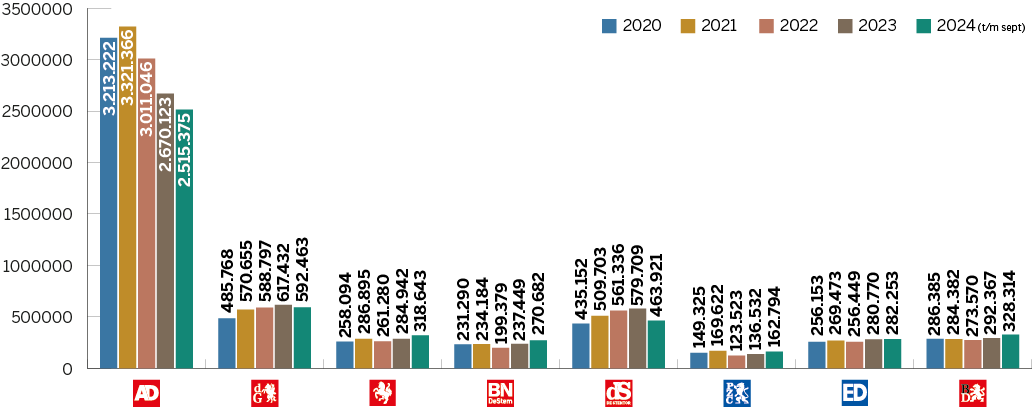
Journalisten in vaste dienst in 2024
Dit geeft de omvang van de redactie weer, omgerekend in voltijds banen (fte). Het zijn zowel de verslaggevers als de chefs, eindredacteuren, vormgevers, beeldredacteuren, video- en podcastmakers en onlineredacteuren. Om het beeld zuiver te houden zijn de freelance journalisten niet opgenomen. Die leveren eveneens een belangrijke bijdrage in de vorm van artikelen, columns, beeld, audio en video. Het zijn er soms honderden per titel. Aantal en werkzaamheden fluctueren van jaar tot jaar.

Meer info
Gemiddeld aantal unieke artikelen per dag
Dit is de hoeveelheid eigen artikelen die elke redactie produceert, van groot tot klein. De meeste redacties publiceren meer dan dat: bijvoorbeeld artikelen van de centrale redactie in het geval van de regionale kranten, of (in België) artikelen van collega-titels die worden doorgeplaatst. Die zijn niet meegeteld, net zo min als de kleine lokale berichten die automatisch worden gemaakt (zoals het weer en 112-berichten), of de doorgeplaatste artikelen van ‘Indebuurt’. Zo ontstaat het zuivere cijfer van wat de eigen redactie dagelijks maakt.

Meer info
Betalende abonnees
Dit is de som van papieren, digitale en hybride abonnementen. Het is het gemiddelde aantal over het desbetreffende jaar.

Rapportcijfers van eigen abonnees
Dit cijfer wordt gegeven door deelnemers aan een jaarlijks lezersonderzoek dat voor de meeste titels wordt gehouden.

Vertrouwenscijfer uit onderzoek
Dit cijfer is afkomstig uit recent onderzoek naar merkvertrouwen in opdracht van DPG Media. Daarbij geeft een algemeen publiek, dus niet alleen abonnees of bezoekers, vertrouwen in verschillende nieuwsmedia aan op een schaal van 0 (helemaal niet betrouwbaar) tot 10 (uiterst betrouwbaar). Daarnaast worden abonnees uitgesplitst, die hun titel doorgaans meer dan gemiddeld vertrouwen. Deze onderzoeksmethode en de uitkomsten komen overeen met die van het jaarlijkse Digital News Report van het Reuters Institute in Oxford. De Nederlandse en Vlaamse gemiddelde vertrouwenscijfers liggen in die monitor hoger dan die van nieuwsmedia in de omringende Europese landen.
Algemeen publiek
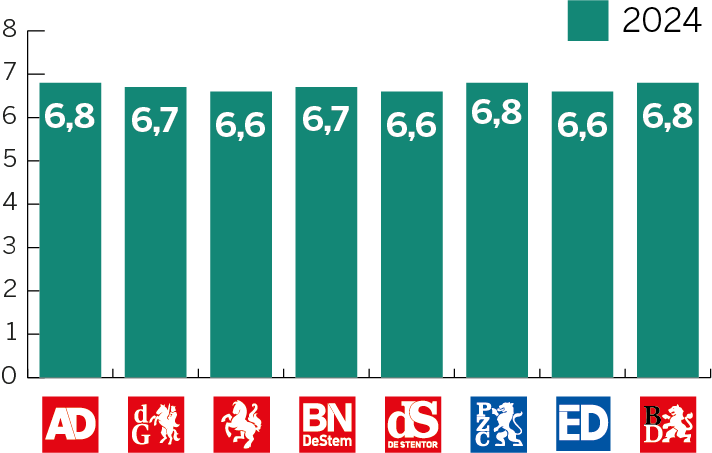
Abonnees
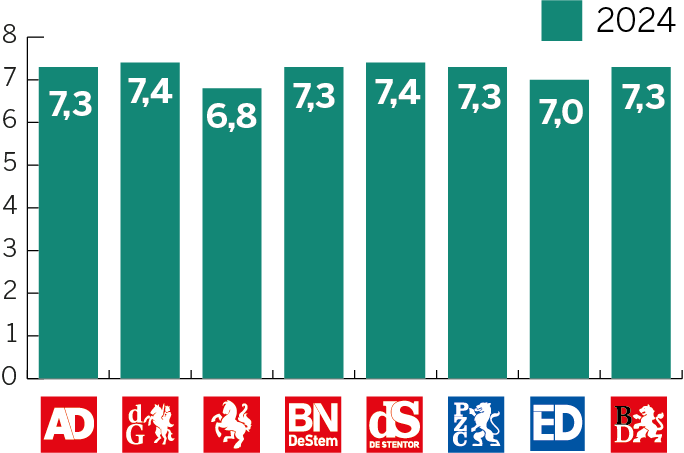
Aantal podcastafleveringen per jaar van alle titels
Deze cijfers geven aan hoeveel podcasts er door de verschillende titels zijn ontwikkeld.
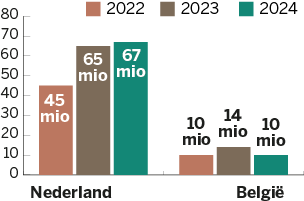
Gemiddeld aantal unieke video's per dag
Deze cijfers geven aan hoeveel video's er door de verschillende titels zijn ontwikkeld.
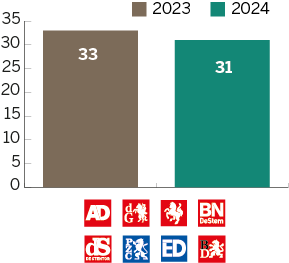
Dagelijks bereik
Gemiddeld dagelijks bereik
Het dagelijks bereik is een veelgebruikte indicatie van de impact die digitale journalistiek heeft. Maandbereik wordt ook weergegeven in de nationale monitors, maar daarin spelen eenmalige bezoekers van de sites een relatief grote rol.

Betalende abonnees
Betalende abonnees
Dit is de som van papieren, digitale en hybride abonnementen. Het is het gemiddelde aantal over het desbetreffende jaar.

Rapportcijfer van abonnees
Rapportcijfers van eigen abonnees
Dit cijfer wordt gegeven door deelnemers aan een jaarlijks lezersonderzoek dat voor de meeste titels wordt gehouden.

Journalisten in vaste dienst
Journalisten in vaste dienst in 2024
Dit geeft de omvang van de redactie weer, omgerekend in voltijds banen (fte). Het zijn zowel de verslaggevers als de chefs, eindredacteuren, vormgevers, beeldredacteuren, video- en podcastmakers en onlineredacteuren. Om het beeld zuiver te houden zijn de freelance journalisten niet opgenomen. Die leveren eveneens een belangrijke bijdrage in de vorm van artikelen, columns, beeld, audio en video. Het zijn er soms honderden per titel. Aantal en werkzaamheden fluctueren van jaar tot jaar.

Meer info
Unieke artikelen per dag
Gemiddeld aantal unieke artikelen per dag
Dit is de hoeveelheid eigen artikelen die elke redactie produceert, van groot tot klein. De meeste redacties publiceren meer dan dat: bijvoorbeeld artikelen van de centrale redactie in het geval van de regionale kranten, of (in België) artikelen van collega-titels die worden doorgeplaatst. Die zijn niet meegeteld, net zo min als de kleine lokale berichten die automatisch worden gemaakt (zoals het weer en 112-berichten), of de doorgeplaatste artikelen van ‘Indebuurt’. Zo ontstaat het zuivere cijfer van wat de eigen redactie dagelijks maakt.

Meer info
Vertrouwenscijfer uit onderzoek
Vertrouwenscijfer uit onderzoek
Dit cijfer is afkomstig uit recent onderzoek naar merkvertrouwen in opdracht van DPG Media. Daarbij geeft een algemeen publiek, dus niet alleen abonnees of bezoekers, vertrouwen in verschillende nieuwsmedia aan op een schaal van 0 (helemaal niet betrouwbaar) tot 10 (uiterst betrouwbaar). Daarnaast worden abonnees uitgesplitst, die hun titel doorgaans meer dan gemiddeld vertrouwen. Deze onderzoeksmethode en de uitkomsten komen overeen met die van het jaarlijkse Digital News Report van het Reuters Institute in Oxford. De Nederlandse en Vlaamse gemiddelde vertrouwenscijfers liggen in die monitor hoger dan die van nieuwsmedia in de omringende Europese landen.
Algemeen publiek
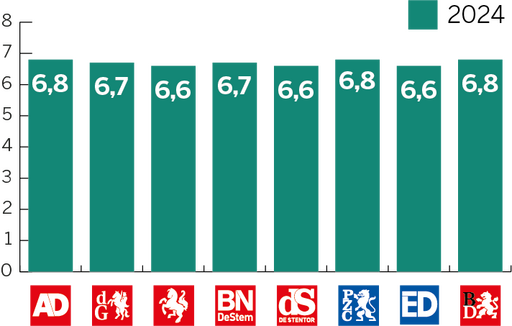
Abonnees
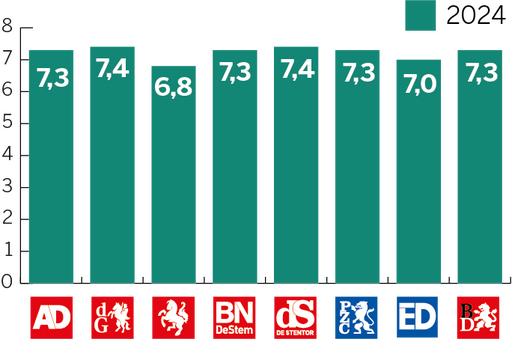
Aantal podcastafleveringen
Aantal podcastafleveringen per jaar van alle titels
Deze cijfers geven aan hoeveel podcasts er door de verschillende titels zijn ontwikkeld.

Aantal unieke video's
Gemiddeld aantal unieke video's per dag
Deze cijfers geven aan hoeveel video's er door de verschillende titels zijn ontwikkeld.

